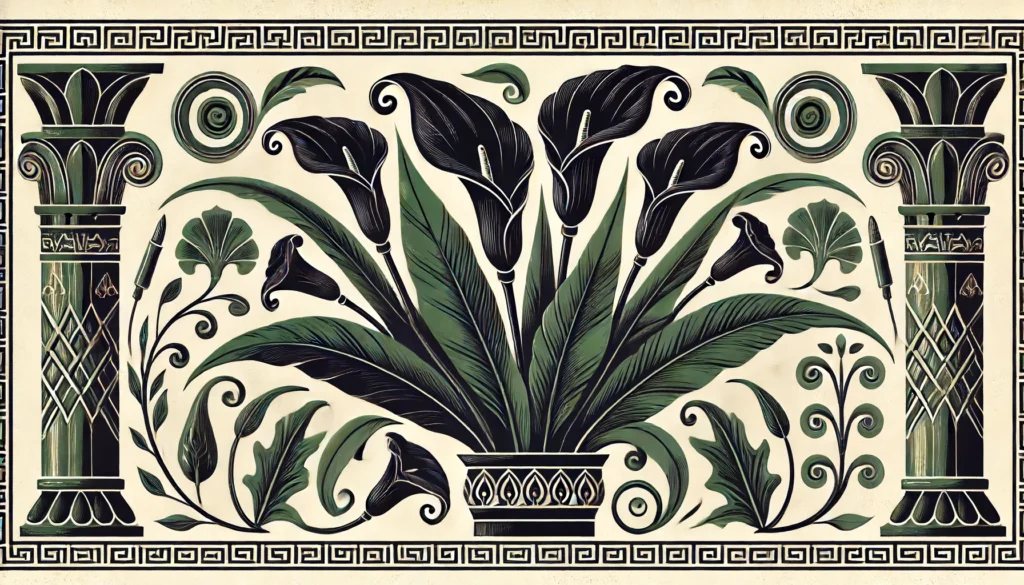

Home » Cat Plants » What Makes the Black Calla Plant Dangerous for Cats?

The Black Calla, scientifically known as Arum palaestinum, is a toxic plant for cats. This perennial flowering herb contains insoluble calcium oxalate crystals, which are poisonous to felines. The Black Calla is commonly found in various regions of the Middle East, particularly in Syria, Lebanon, and Jordan.
Ingestion may cause mild gastrointestinal upset, but is generally not life-threatening.
Ingestion can result in mild symptoms like vomiting, diarrhea, or drooling. Rarely fatal but may require veterinary care.
Eating these plants can lead to more pronounced symptoms like abdominal pain, lethargy, or difficulty breathing. Veterinary intervention may be necessary.
Ingesting even small amounts can cause severe symptoms like organ damage, seizures, or cardiac failure without rapid treatment.
All parts of these plants are extremely poisonous to cats and can quickly lead to death, even with immediate veterinary care.
** Please note: Please note that toxicity level can vary based on the amount ingested and the specific cat. It's always best to keep these plants completely inaccessible to cats and seek immediate veterinary care or call the poison hotline if you suspect your cat has ingested any part of a toxic plant.
If a cat ingests the Black Calla plant, it may experience severe symptoms due to the toxic calcium oxalate crystals. These symptoms can include intense oral irritation, pain and swelling of the mouth, tongue, and lips, excessive drooling, vomiting, and difficulty swallowing.
If you suspect your cat has ingested the Black Calla plant, it is crucial to seek immediate veterinary care. Your veterinarian will carefully observe the symptoms and may need to perform a thorough examination, including inspecting the mouth and throat for signs of irritation or swelling. They may also request a sample of the plant to confirm the diagnosis.

A: Yes, cats can be allergic to Black Calla. Symptoms of an allergic reaction may include itching, sneezing, and skin irritation.
A: Yes, Black Calla is toxic to cats. Ingesting any part of this plant can cause symptoms such as vomiting, diarrhea, and drooling.
A: Symptoms of Black Calla poisoning in cats include vomiting, diarrhea, excessive drooling, and oral irritation. Immediate veterinary care is recommended if ingestion is suspected.
A: To prevent contact, ensure that Black Calla is not present in your home or garden. Keep your cat indoors or monitor outdoor activities closely to avoid exposure.
A: If your cat ingests Black Calla, contact your veterinarian immediately. Do not induce vomiting unless instructed by a veterinary professional. Immediate medical attention is necessary.
A: Yes, Black Calla is commonly found in gardens and as an ornamental plant. It is important to ensure this plant is kept out of reach of cats to prevent accidental ingestion.
The Black Calla is native to the Middle East region, particularly in countries like Syria, Lebanon, and Jordan. It has been used in traditional Middle Eastern herbal medicine, where the leaves and rhizomes were boiled in milk and used as a dressing for wounds. The plant is also known by various names, such as Palestine Arum, wild calla, and wild arum.
Please note: The information shared in this post is for informational purposes only and should not be considered as veterinary medical advice.
🐾 A hilarious or heart-melting cat video
🐾 Our latest paws-on review of a cool cat toy